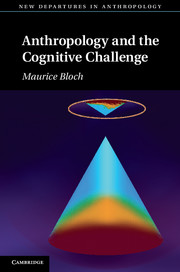Book contents
- Frontmatter
- Contents
- Acknowledgements
- 1 Why anthropologists cannot avoid cognitive issues and what they gain from these
- 2 Innateness and social scientists' fears
- 3 How anthropology abandoned a naturalist epistemology: a cognitive perspective on the history of anthropology
- 4 The nature/culture wars
- 5 Time and the anthropologists
- 6 Reconciling social science and cognitive science notions of the ‘self ’
- 7 What goes without saying
- 8 Memory
- References
- Index
8 - Memory
Published online by Cambridge University Press: 05 August 2012
- Frontmatter
- Contents
- Acknowledgements
- 1 Why anthropologists cannot avoid cognitive issues and what they gain from these
- 2 Innateness and social scientists' fears
- 3 How anthropology abandoned a naturalist epistemology: a cognitive perspective on the history of anthropology
- 4 The nature/culture wars
- 5 Time and the anthropologists
- 6 Reconciling social science and cognitive science notions of the ‘self ’
- 7 What goes without saying
- 8 Memory
- References
- Index
Summary
Memory, working memory and the implicit in practice
The point of this chapter is to show how the type of arguments that have been presented up to here modify a topic which social and cultural anthropologists, as well as other social scientists, have discussed extensively. This modification is not a matter of dismissal of the work of these disciplines but rather a reformulation. Chapter 6 concluded by stressing how human beings exist within two continuities. One is internal and extends from levels of being that are normally totally inaccessible to consciousness to the fully explicit and even the meta-representational. The other continuity is that which is created by the interpenetration of individuals which allows different individuals continually to transform each other. Our knowledge, including our concepts and schemas, derive from a multiplicity of sources both internal and external and, as we saw in the previous chapter, this knowledge is more or less explicit and more or less accessible to consciousness. This chapter will consider how it is stored.
Memory in the individual has inevitably the same layered character as the blob or the knowledge examined in the earlier chapters. Information is similarly stored in similarly varied forms ranging from the implicit to the explicit and from the totally inaccessible to the fully accessible to consciousness. This information can be internal and bounded within the individual or it can be shared. When it is widely shared it becomes the phenomenon that anthropologists have traditionally called ‘culture’. However, throughout this book, for reasons discussed in chapter 4, I have avoided the term. This has been because although the term helps us focus on the continuity between individuals it makes us, at the same time, forget the internal continuity. By contrast, I have stressed how both continuities must be thought together since this is how we actually are.
- Type
- Chapter
- Information
- Anthropology and the Cognitive Challenge , pp. 186 - 217Publisher: Cambridge University PressPrint publication year: 2012



